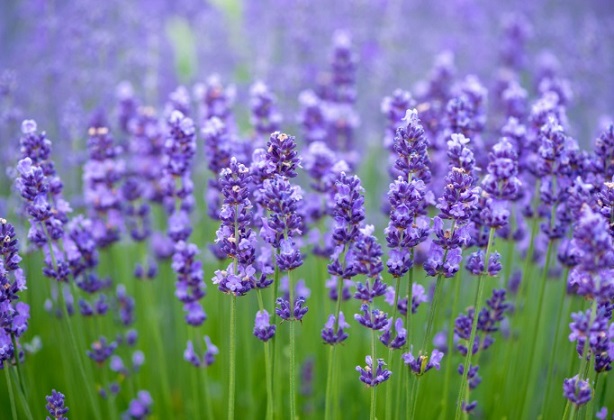Nikhil Prasad Fact checked by:Thailand Medical News Team Jul 01, 2025 7 months, 1 week, 6 days, 1 hour, 18 minutes ago
Medical News: Lavender Extract Formulated in Nanotech Vesicles Could Be the Future of Herpes Treatment
In a promising development for those suffering from recurrent herpes simplex virus type 1 (HSV-1) infections, researchers from the University of Cagliari in Italy, the Bulgarian Academy of Sciences, and Palacký University Olomouc in the Czech Republic have developed an innovative topical treatment using lavender extract and advanced nanotechnology. This
Medical News report explores a study that combines a natural compound—rosmarinic acid-rich Lavandula angustifolia extract—with cutting-edge liposomal delivery systems to both reduce viral activity and support skin healing.
 Lavender Based Nanotech Cream Shows Strong Antiviral Powers Against Herpes
Lavender Based Nanotech Cream Shows Strong Antiviral Powers Against Herpes
HSV-1, which causes painful oral lesions, currently has no cure. Treatments like acyclovir merely reduce symptoms temporarily. The virus can remain dormant in the body and reactivate during stress or illness. Researchers are now turning to nature and biotechnology for more sustainable and effective solutions.
A Natural Extract Supercharged with Nanotech
The key to this new therapy is rosmarinic acid, a powerful antioxidant and anti-inflammatory compound found in high concentrations in lavender. Researchers cultivated L. angustifolia cells biotechnologically to produce a rich extract with rosmarinic acid levels exceeding 100 mg per gram—nearly 100 times more than what is found in natural flower extracts. But because such compounds degrade easily and are hard to absorb through the skin, the team encapsulated them in four types of nanovesicles: liposomes, glycerosomes, hyalurosomes, and glycerohyalurosomes.
The vesicles were engineered to enhance delivery, stability, and bioactivity. Glycerosomes (modified with glycerol) were the smallest and most stable at 58 nm, while hyalurosomes used hyaluronic acid to boost skin absorption. The combination system—glycerohyalurosomes—added both components for maximum efficiency.
Testing in Human Skin Cells and Antiviral Models
All four formulations were non-toxic and enhanced skin cell viability, particularly under oxidative stress caused by hydrogen peroxide. In addition, the formulations significantly reduced inflammation markers like MMP-1 and IL-6 when tested on wounded human dermal fibroblasts exposed to bacterial lipopolysaccharides.
When the antiviral potential was tested in Vero cells infected with HSV-1, three of the formulations—glycerosomes, hyalurosomes, and glycerohyalurosomes—offered strong protection. When applied during or after infection, they protected up to 100% of cells from the virus’s cytopathic effects. Glycerosomes performed especially well, showing stronger antiviral effects than standard acyclovir in several conditions.
More Than Just Antiviral
The formulations also demonstrated virucidal activity at higher concentrations, meaning they could deactivate the virus directly—not just
block its replication.
Additionally, the nanovesicles provided excellent antioxidant support and inflammation control, both of which are important for healing skin lesions caused by herpes.
A Promising Future for Herpes and Skin Inflammation Treatments
These lavender-based nanovesicle creams could revolutionize topical treatment of HSV-1 and other skin conditions. They work on multiple fronts: directly attacking the virus, calming inflammation, reducing oxidative stress, and helping tissue regeneration. The combination of natural plant medicine with advanced drug delivery systems makes this approach both safe and potentially more effective than current antivirals alone.
The researchers note that further testing is needed in more complex models and eventually in human clinical trials, but the current evidence supports the use of these formulations as a novel, multi-action topical therapy.
The study findings were published in the peer reviewed journal: Antioxidants
https://www.mdpi.com/2076-3921/14/7/811
For the latest on Herpes treatments, keep on logging to Thailand
Medical News.
Read Also:
https://www.thailandmedical.news/news/bulgarian-scientists-discover-lactobacilli-postmetabolites-as-potential-anti-herpes-agents
https://www.thailandmedical.news/news/new-approach-against-influenza-and-herpes-simplex-viruses-using-chewing-gum-infused-with-lectins
https://www.thailandmedical.news/news/italian-study-finds-that-jujube-fruit-extracts-show-promising-potential-against-herpes-virus
